Common Spittlebug
Machaerotida
Ledrinae
TheWorld'sLargestLeafhopper
BlackFlat-headLeafhopper
White-dotedBrownLeafhopper
Tartessinae
Yellow-headedLeafhopper
Brown Leafhopper1
Eurymelinae
Common Jassid
Punctata Gum-treehopper
Penthimiinae
Membracidae
Lantana Treehopper
Banksia Treehopper
Green Horned Treehopper
AcaciaHornedTreehopper
Tri-horned Treehopper
Acacia Horned Treehopper - Sextius virescens
Family Membracidae
This page contains pictures and information about Acacia Horned Treehoppers that we found in the Brisbane area, Queensland, Australia.
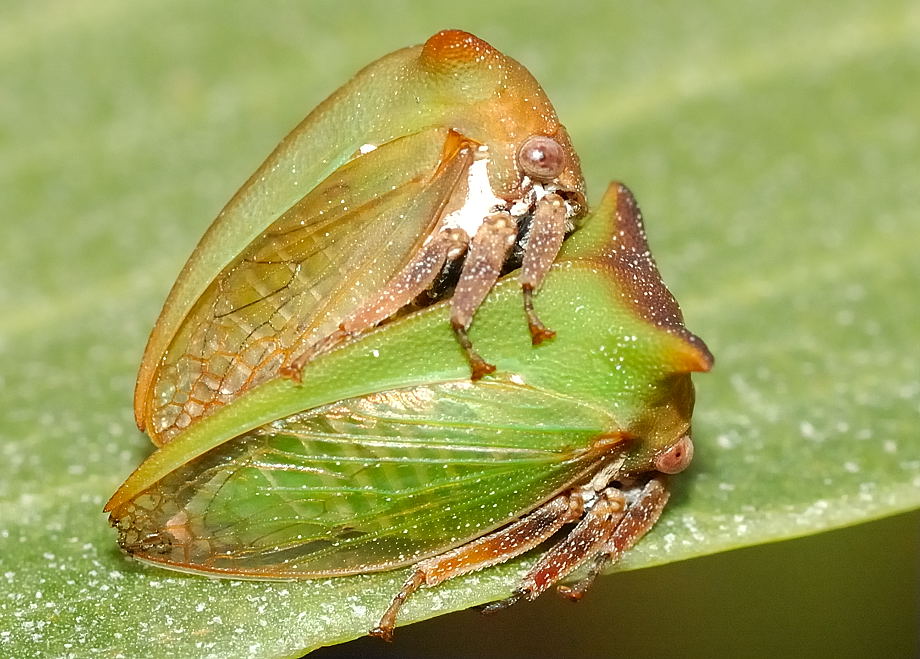
- Body length 5mm, male and female
- This Treehopper is green in colour with two small brown horns. They usually rest motionlessly on stems. They camouflage well and hardly be seen unless we come very closely. They were found only on young Acacia trees.
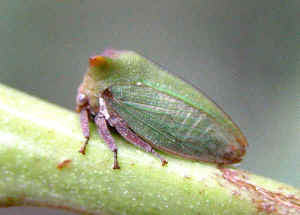

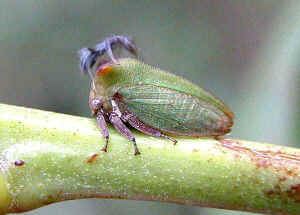
- Pictures were taken in Yugarapul Park during early summer 2004. There were a group of Treehoppers found on a young Acacia tree. Those Treehoppers were constantly attended by ants. The ants come for their honey dew. The treehoppers suck the plant juice. Within the juice, there are water and sugar more than the treehoppers need. They are excreted as honeydew.
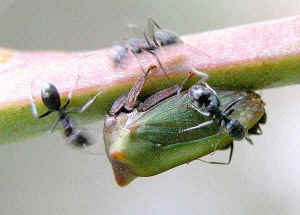

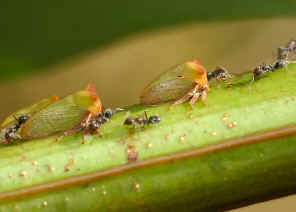
- The treehoppers are slow moving. They do not move a bit when seen, only move to the other side of the stem when watching them very closely. They jump only whem we try to touch them. They jump away with a click sound.


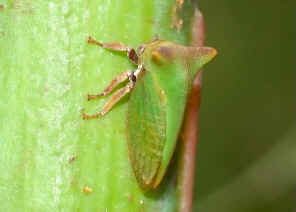
- They have the pronotum extending forward and form the horns. Their enlarged pronotum also extend backward over the abdomen between wings, which gives them the bizarre looking body shape.

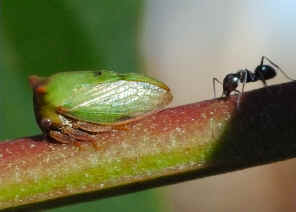
- We also found them in Ford Road Reserve Area during Apr 2007 and Apr 2008.
-

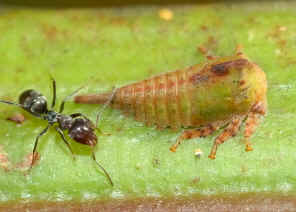
- On Sept 2006 in Karawatha forest, we found a group of treehopper larvae on Acacia tree. We believed they were the Acacia Horned Treehopper larvae. Whew rest, the treehopper larvae lie flat on the stem, this helps to break down their body shape and have the better camouflage.



- Notice in the above photos, one nymph shows it anal whip. The whip is an tube extended from the anus. They fully extend it and move rapidly from side to side when disturbed.
- Reference:
- 1. Sextius virescens - Fletcher, M.J. and Larivière, M.-C. (2001 and updates).
- 2. Sextius virescens - Australian Insect Common Names, 2005.
- 3. That the Anal Whip is Used for Defense - Dr Beetle's Wild Page.
- 4. Species Sextius virescens (Fairmaire, 1846) - Australian Faunal Directory, Australian Biological Resources Study, 2008.
